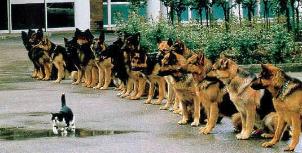
Good traders keep good records. They keep them not just for their
accountants but as tools of learning and discipline. If you do not have
good records, how can you measure your performance, rate your
progress, and learn from your mistakes? Those who do not learn from
the past are doomed to repeat it.
When you decide to become a trader, you sign up for an expensive
course. By the time you figure out the game, its cost may equal that of
a college education, only most students never graduate—they drop out
and get nothing for their money except for memories of a few wild rides.
Whenever you decide to improve your performance in any area of
life, record keeping helps. If you want to become a better runner, keeping
records of your speeds is essential for designing better workouts.
If money is a problem, keeping and reviewing records of all expenditures
is certain to uncover wasteful tendencies. Keeping scrupulous
records turns a spotlight on a problem and allows you to improve.
Becoming a good trader means taking several courses—psychology,
technical analysis, and money management. Each course requires its
own set of records. You’ll have to score high on all three in order to
graduate.
Your first essential record is a spreadsheet of all your trades. You have
to keep track of entries and exits, slippage and commissions, as well
as profits and losses.


